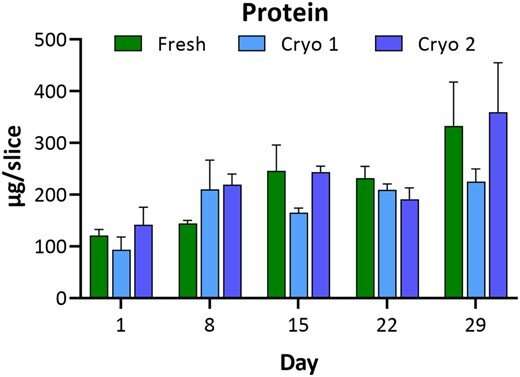This article has been reviewed according to Science X's editorial process and policies. Editors have highlighted the following attributes while ensuring the content's credibility:
fact-checked
peer-reviewed publication
proofread
Expanding access to human lung slices to reduce animal testing

A new paper coauthored by PETA Science Consortium International e.V., the Institute for In Vitro Sciences (IIVS), and the University of Minnesota is poised to revolutionize the field of inhalation research and toxicity testing. The study was established by the Science Consortium to expand access to human-relevant research tools and, by so doing, reduce the number of animals used in inhalation testing—a field previously hampered by the scarcity of donated human lungs.
The new findings set out in the paper show that both fresh and cryopreserved human precision-cut lung slices can be used to assess the toxicity of inhaled chemicals. The frozen-thawed lung slices can be maintained and used for testing for at least four weeks, just like fresh slices, while also retaining functionality—something that has never been achieved before.
Given the scarcity of donated human lungs, the ability to use those that have been previously frozen will greatly expand the availability of these tissues for research and help replace the use of animals in tests to assess the effects of chemicals, drugs, and other substances on the human lung.
"Our paper shows that human precision-cut lung slices are accessible, human-relevant models to test the effects of inhaled chemicals," says Science Consortium President Dr. Amy Clippinger. "Having an accessible bank of frozen human tissues for research could lead to a vast improvement in our understanding of human lung disease and toxicity."
"The performance of the frozen-thawed human precision-cut lung slices exceeded our expectations," says IIVS Director Dr. Holger Behrsing. "Combined with our improved slicing technology that allows thousands of slices to be generated from a single human lung, normal and diseased tissues from various demographic backgrounds can be banked. These reserves of diverse tissues can be used for repeat studies and capture donor variability to better reflect the human population."
The paper is published in Toxicological Sciences. Based on the success of the study, IIVS is now offering frozen lung slices to the research community at large. It's one of only a few suppliers in the world to offer this product commercially.
More information: Vivek S Patel et al, Cryopreserved human precision-cut lung slices provide an immune competent pulmonary test system for "on-demand" use and long-term cultures, Toxicological Sciences (2023). DOI: 10.1093/toxsci/kfac136




















